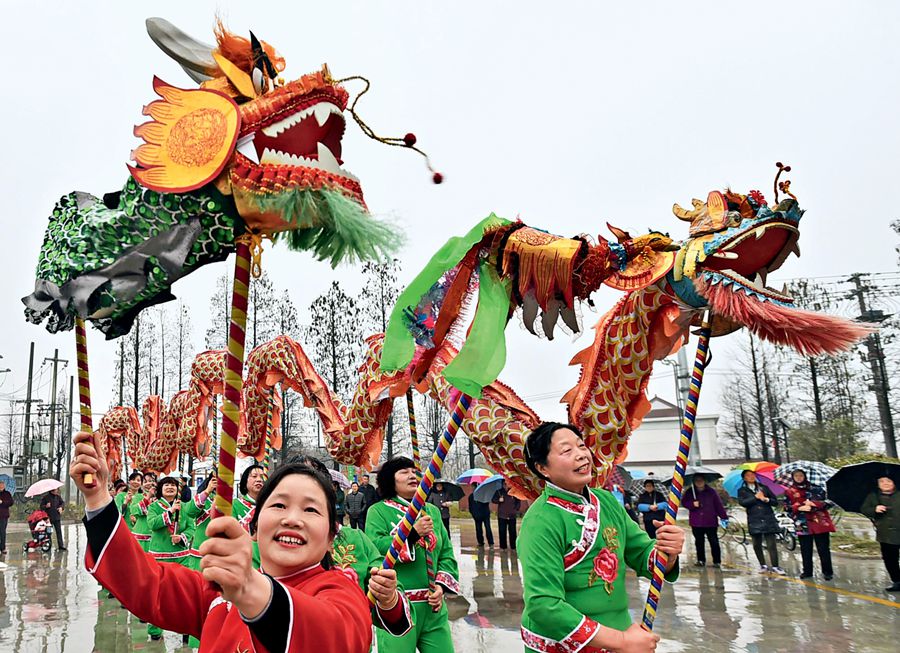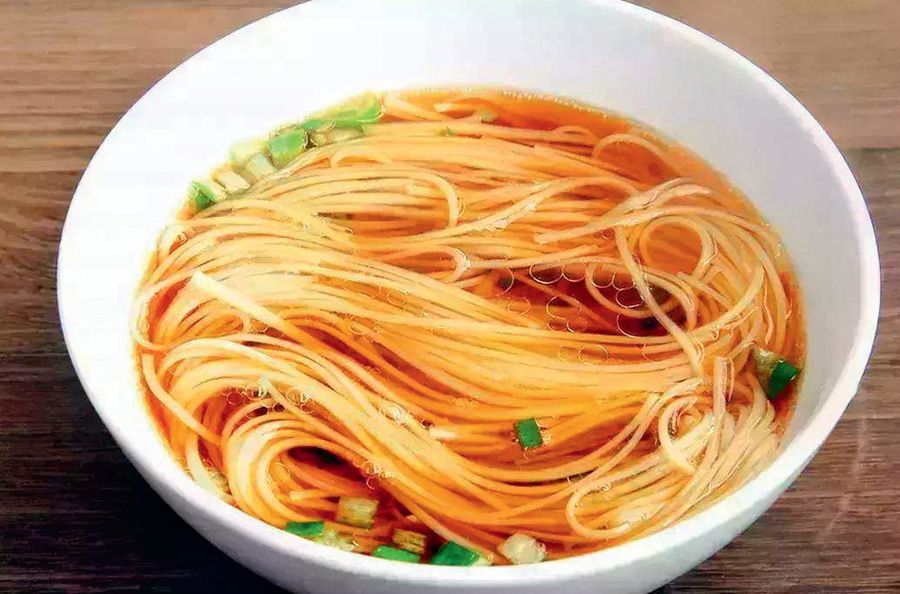AS a traditional Chinese festival, the Spring Dragon Festival falls on the second day of the second month of the Chinese lunar calendar (March 8, 2019 in solar calendar), meaning the day when the dragon looks up. In the second month of the lunar calendar, spring returns to the earth and heralds everything coming back to life. It is said that the dragon king in the sky who is in charge of rainfall wakes up on that day and raises its head to spray rain and dew on the earth. People celebrate the day as a mark of respect for the dragon and pray for rain, expecting good weather and a good harvest for the year. The history of the festival goes back thousands of years.
Origin
Fuxi was among the first recorded in ancient books as paying attention to farming and sericulture. In order to promote agricultural production, he cultivated the fields every year on the second day of the second lunar month, when the weather turned warm. During the reign of King Wu of the Western Zhou Dynasty (c.1100- c.771 BC), a grand ceremony was held annually on that day, calling on civil and military officials to participate in cultivating together. However, the official recognition of it as a folk festival on this day began in the Yuan Dynasty (1271 - 1368).

A traditional dragon dance performed by folk artists in Yuqiao Village of Yangzhou City, Jiangsu Province during the Spring Dragon Festival in 2018.
The second lunar month lies around the middle of spring, when farmers are getting ready to plow and sow, and it is necessary to moisten the soil and retain moisture. The traditional Chinese concept holds that the dragon can make clouds and rains. Therefore, people expect that on that day, the awakened dragon will fulfill its duty of providing rain.
Legends
There are many interesting legends about the festival, and the following is the most widely shared story:
When Empress Wu Zetian of the Tang Dynasty (624-705) usurped the throne, the Emperor of Heaven was furious and ordered that there would be no rain for three years as punishment. However, a dragon in charge of rainfall could not bear to see the starving people, and stealthily caused a heavy rain. After the Emperor of Heaven found out, he placed the dragon under the crushing weight of a mountain and said: the dragon cannot return to heaven unless golden beans bloom.
In order to save the dragon, people looked for flowering golden beans everywhere. On the second day of the second lunar month, a woman carried a bag of soybeans and called on her relatives. On the way, she accidentally spilled the beans, and the yellow beans sparkled in the sun. When people saw it, they said happily: “Aren’t these the golden beans? Do they not bloom after being cooked?” Thus every household fried soybeans and set up a case in the courtyard to provide “flowering golden beans.”
The dragon knew that people were trying to save it. It raised its head and shouted to the emperor: “Golden beans have bloomed, let me out!” The Emperor of Heaven had no choice but to let the dragon return to sky and continue to provide rainfall to the people. It is said that this is also the origin of the folk custom of eating fried beans on that day.
On that day, there is a saying that goes “getting a haircut to remove the old.” For children, getting a haircut acts as a symbolic blessing for them to grow up healthy, and live fulfilling lives. For adults, getting a haircut signifies a break with the old and ushering in better luck for the future.
The ceremonial eating of fried beans is related to the legend of “golden bean bloom.” On the day, every household used sugar to fry soybeans. The fried soybeans are sweet, crisp, chewy, and popular.
Eating dragon-related food:
On this day, people eat food mostly named after “dragon,” such as dumplings called “dragon ears,” eating rice called “dragon eggs”, eating noodles called “dragon beards.” These customs revolved around the belief that eating dragon-themed food would imbue people with good luck and fulfill wishes, and grant them a bumper grain harvest.
In some parts of northern China, a married woman cannot visit her family in the first month of the lunar calendar. But by the second day of second month, the family will come to pick up their daughter and stay with her for a few days.
Dragon brings water, and water brings money. People will place a few coins in a pot on this day, fetch water in a well or river near the house, and sprinkle them all the way back home, then pour the water and coins in the pot into the water tank, as a way of leading the water (and the money associated with it) to home.
Sending off dragon lights:
In the Yellow River Delta and some riverside areas, many people use reeds or stalks to build small boats, place candles or small oil bowls on them, and wait until the evening to put them in the river to ignite for the dragon.
Knocking the dragon’s head:
On the day, in some areas of northeast China, people strike a beam of their houses with a long pole, known as knocking the dragon’s head. It is said that this can wake up the dragon and bring peace.



